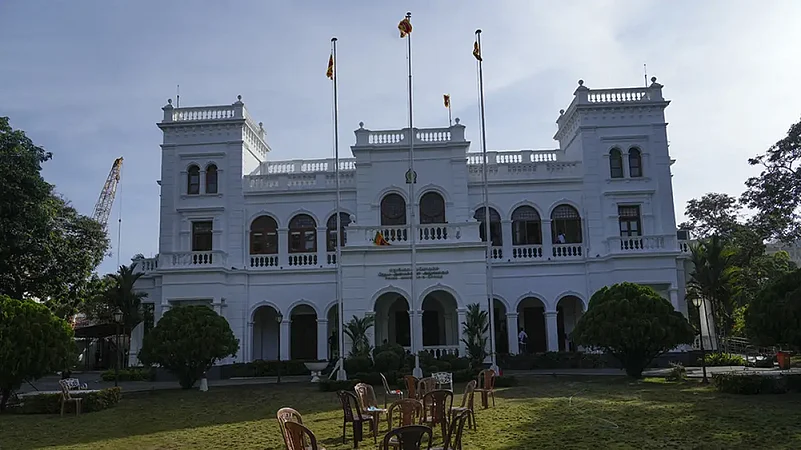Sri Lanka's central bank on Thursday announced a reduction in the interest rates aimed at enabling the cash-strapped island nation's economy to reach its potential and easing pressures in the financial markets.
A statement from the Central Bank of Sri Lanka said the deposit facility rate and the lending facility rates were reduced by 200 basis points to 11 and 12 per cent.
This is aimed at “enabling the economy to reach its potential and stabilising inflation at mid-single digit levels in the medium term while easing pressures in the financial markets”, the statement said.
Accordingly, the “banking and financial sector is urged to pass on the benefits of this significant easing of monetary policy by the central bank to individuals and businesses, thereby supporting economic activities to rebound in the period ahead”, the statement added.
This is the second policy interest rate reduction as the central bank in early June brought down policy interest rates -- the first such in three years.
Meanwhile, Verite Research, a think tank, said the government’s approval rating had doubled to 21 per cent in June.
“The approval rating of the government doubled to 21 per cent in June 2023 from the 10 per cent recorded in both February 2023 and October 2022, according to the latest round of the Gallup style ‘Mood of the Nation’ poll of Verite Research,” the think tank said.
They said the 'Mood of the Nation' poll is conducted periodically by Verite Research and is based on an island-wide nationally representative sample of responses.
The 'Mood of the Nation' survey is designed to assess the approval, satisfaction, and confidence of the nation in relation to the government, the country, and the economy.
By this time last year, the country was witnessing large-scale public protests on the streets which culminated in the ouster of the powerful Rajapaksa family from politics.
Then-president Gotabaya Rajapaksa fled to Maldives and then to Singapore after protesters stormed the presidential palace on July 9 last year.

Sri Lanka Crisis
Sri Lanka Crisis
Published At:
MOST POPULAR
WATCH
MORE FROM THE AUTHOR
×
























